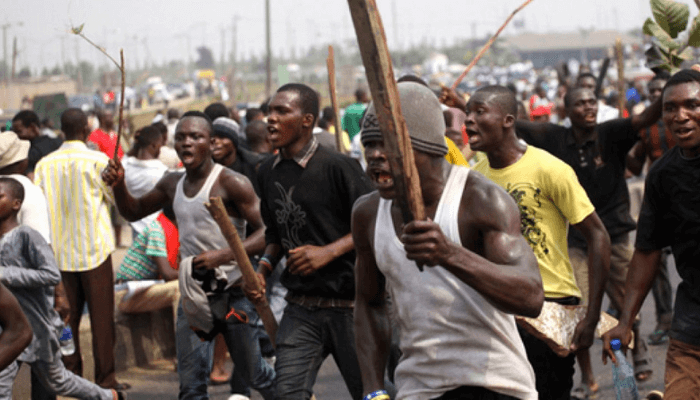


Ending the touting menace
Touting, in its most damaging form, refers to the forceful extraction of money from commercial drivers by faceless individuals, often without providing any tangible service in return. This lawless practice has become a common feature in many Nigerian cities, with touts operating with impunity, claiming to act on behalf of invisible powers, while making life miserable for commercial drivers and ordinary citizens alike.
The recent announcement by the Rivers State Ministry of Transport to ban all taskforces in the state was initially seen as a ray of hope. Many Nigerians hoped it would lead to a reduction in touting and other forms of lawlessness. However, much to the disappointment of the public, the ban did not bring the expected relief. Instead, it seemed to embolden the touts, who became even more brazen and more entrenched in their illegal activities, with no regard for the law.
From Lagos to Port Harcourt, Aba to Kano, and from Sokoto to Ibadan, the situation is the same. Touts armed with dangerous tools like pipes and machetes, continue to terrorize commercial drivers, extorting money at will from them, with no recourse to justice. These criminal elements show no fear of the law, and the question remains: who do these individuals work for? There are no answers, and this uncertainty breeds fear and helplessness among the general public.
Touts are notorious for damaging vehicles, ripping off side mirrors, traffic lights, and looting vehicle boots, often without any provocation. Passengers, too, are not spared from the rampage, with many losing their personal belongings to these thugs. This state of lawlessness, where citizens are left at the mercy of criminal elements, is a far cry from the peaceful, orderly society that Nigerians deserve.
No civilized society would allow such rampant criminality to flourish unchecked. The damage these touts cause is not just physical, but economic as well. Every day, man-hours are wasted on the roads as commercial drivers are forced to navigate a hostile environment, constantly looking over their shoulders for fear of being extorted or attacked.
The ban on taskforces was a step in the right direction, as it sought to separate the official law enforcement bodies from the touts. However, this well-meaning initiative has been undermined by the sheer audacity and impunity of the touts. Rather than curbing their activities, the absence of taskforces has only allowed these criminals to operate unchecked, turning once vibrant cities into chaotic, unsafe environments.
It is widely acknowledged that a large proportion of the petty crimes that plague our streets are directly linked to the activities of touts. From pickpocketing to more violent crimes, these individuals are often at the center of it all. As night falls, they transform from mere nuisance makers into full-fledged criminals, targeting vulnerable citizens, especially women, for their phones, handbags, and wallets.
The situation demands urgent action from the government. If Nigerian leaders are unsure of how to combat the menace of touting, they need look no further than the example set by Abia State under the leadership of Governor Dr. Alex Otti. Upon taking office, Governor Otti took decisive action to rid the state of touts, and to this day, Abia remains largely free of this scourge. The success of this initiative should serve as a blueprint for other states across Nigeria to follow.
The Nigerian government, led by President Bola Tinubu, has shown commitment to addressing the nation’s numerous challenges through people-oriented policies. However, the persistence of touting on Nigerian roads undermines these efforts, casting a shadow over the administration’s achievements. No responsible government can allow such a social ill to persist.
For the government, the solution may lie in focusing on notorious hotspots for touting. These include bus terminals, busy roads, and intersections in cities such as Lagos, Abuja, Kano, and Port Harcourt, where the presence of touts is most prominent. Addressing the issue in these high-traffic areas would go a long way in restoring order and peace to our streets, while ensuring the safety of both commercial drivers and the general public.
Nigerians have long endured the lawlessness that touts have brought to our roads. The government must act now to curb this menace, not just for the sake of commercial drivers, but for the sake of public safety and national order. We, as a nation, cannot afford to allow this chaos to persist any longer. The government must take bold action, or risk the continued erosion of our social fabric.
As the saying goes, “A stitch in time saves nine.” It is time for the Nigerian government to take decisive action against touting and the lawlessness that comes with it. The people are watching, and their patience is wearing thin. It is now or never.



